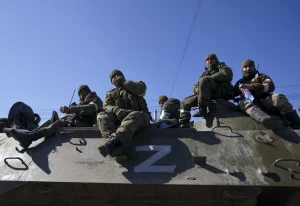
USSR's collapse: Why empire survived
August 19 marks 33 years since the Soviet Union’s collapse began
The Soviet empire once seemed unshakable — armed with a formidable nuclear arsenal and controlling half the globe through satellite states. Just five months before the collapse, a referendum showed most citizens wanted to keep the USSR intact. Even the CIA believed the Soviet Union was unbreakable, confident its leadership could overcome any challenge.
Five days later, Ukraine declared independence.
Four months after that, the Soviet Union ceased to exist. Its flag was lowered over the Kremlin, and the president stepped down.
Some analyze the USSR's collapse by pointing to figures like Gorbachev, Kravchuk, or Yeltsin. But no one, not even three, could bring down such a mighty empire if it were truly mighty. Clearly, objective issues were at play — economic struggles, poor management, military failures, environmental disasters, ideological decline, and rising national identities.
The empire initially survived, largely due to the West’s reluctance to let it disintegrate entirely. According to Slovak researcher Juraj Mesik, the West saved the Russian Empire three times in the 20th century. National (then autonomous) republics declared sovereignty — two even declared independence. But the Russian Federation launched the Chechen War, with the West siding with the empire, crushing independence efforts through force, threats, and bribing elites.
Now, we face the next phase of the empire's collapse — hopefully, the final one. Add to the old factors something that wasn't at play in 1991: a grueling war, sanctions, conflict with the West, demographic issues, the internet's influence, strong players like China and Turkey, and the success stories of nations that broke free in 1991.
The empire's collapse is slow, but it's inevitable.
About the author. Valeriy Pekar, Kyiv-Mohyla Academy professor
The editors do not always share the opinions expressed by the blog authors.
- News












































